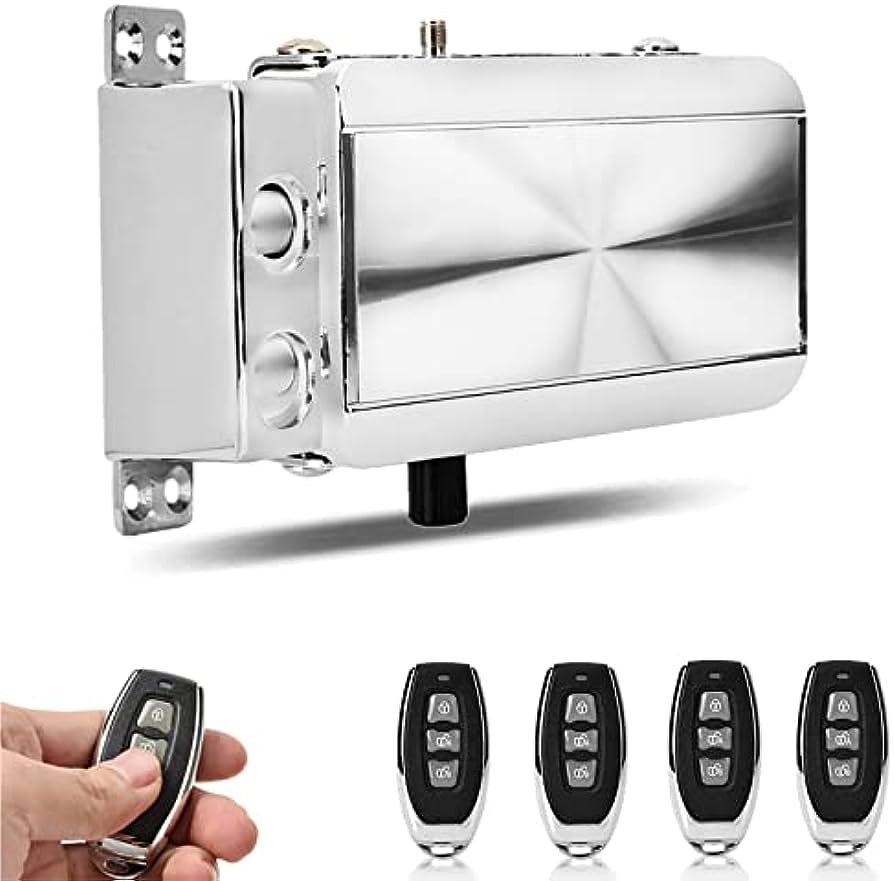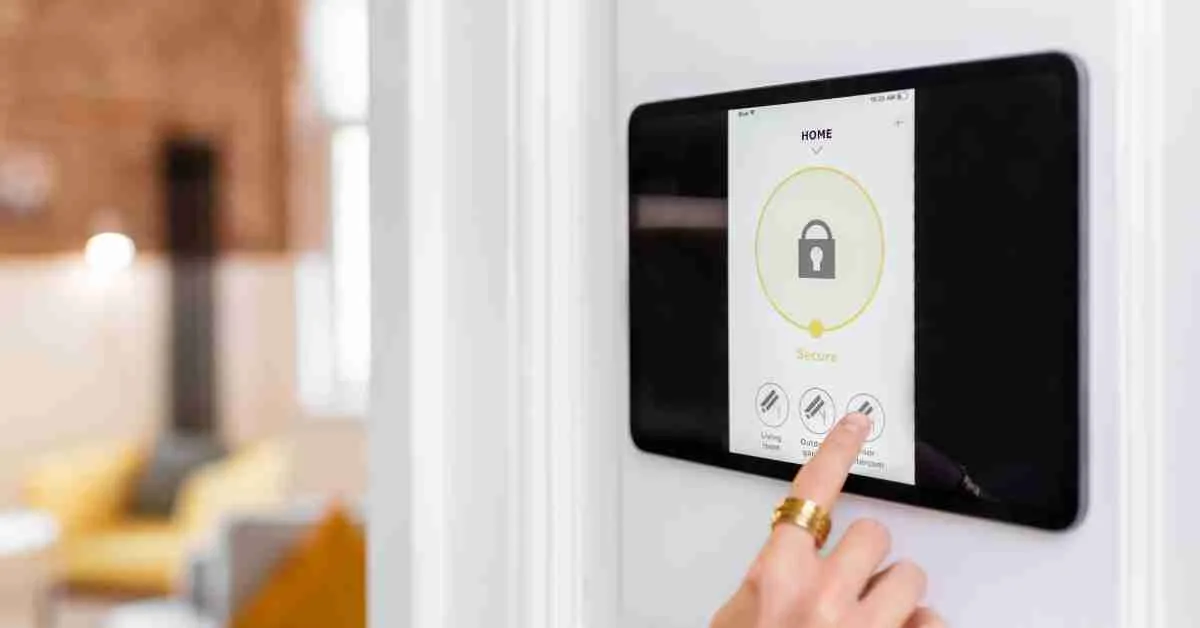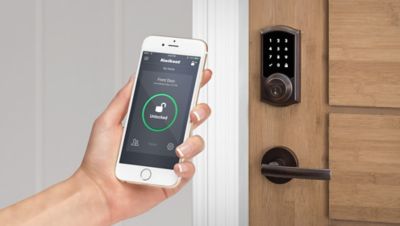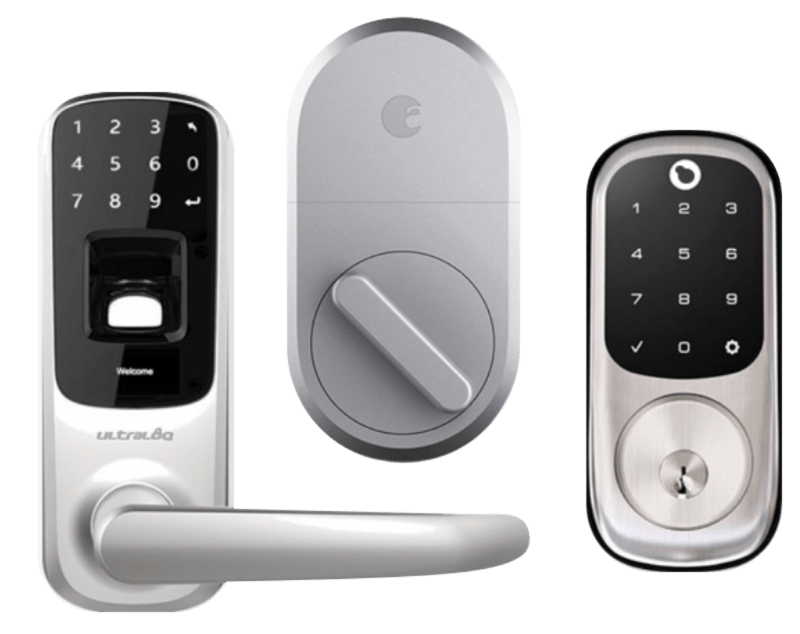Unlocking the next level of convenience and security, smart locks have revolutionized the way we access and control our homes. With the advancement of technology, brands like Ring, Nest, Arlo, Wyze, SimpliSafe, Eufy Security, and many more have emerged as leading players in this market. These smart locks offer remote access and control, allowing you to lock or unlock your doors from anywhere using your smartphone. This article explores the benefits and features of these smart lock systems, empowering you with the knowledge to make an informed choice for your home security.
Smart Locks for Remote Access and Control

Introduction
In today’s digital age, having control and access to your home is easier than ever before. Thanks to smart lock technology, you can remotely control and monitor your door locks from anywhere in the world using your smartphone or other connected devices. Smart locks offer enhanced security, convenience, and integration with existing smart home systems. In this article, we will explore the benefits of smart locks, top brands in the market, essential features to consider, comparisons between different models, the integration factor, enhanced security measures, installation and setup process, common challenges and troubleshooting, and future trends and innovations.
Definition of Smart Locks
Smart locks are electronic devices that replace traditional door locks, allowing you to control your door’s access remotely. These locks connect and communicate with your smartphone or other connected devices via wireless technologies such as Wi-Fi, Bluetooth, or Z-Wave. With smart locks, you no longer need to carry physical keys or worry about losing them. Instead, you can lock and unlock your doors using your smartphone, a key fob, or even through voice commands.
Importance of Remote Access and Control
Remote access and control of door locks provide homeowners with unparalleled convenience and peace of mind. Imagine being able to let your family or friends into your home while you’re away, granting access to delivery personnel, or remotely locking your doors if you forgot to do so before leaving. Smart locks empower you with the ability to control who enters your home, monitor access, and receive real-time notifications, all from the palm of your hand. Whether you’re at work, on vacation, or simply in another room, smart locks give you ultimate control over your home’s security.
Benefits of Smart Locks
Enhanced Security
One of the primary benefits of smart locks is the enhanced security they provide. Unlike traditional locks, smart locks are not vulnerable to lock picking or key tampering. Many smart locks also offer advanced security measures like two-factor authentication, tamper alerts and detection, and secure communication protocols. With these features, you can rest assured knowing that your home is well-protected against potential intruders.
Convenience for Homeowners
Smart locks offer an incredible level of convenience for homeowners. Never again will you need to fumble with keys or worry about losing them. You can simply use your smartphone or a key fob to unlock and lock your doors. Additionally, many smart locks come with features like auto-lock, which automatically locks your door after a set period of time, and geofencing, which unlocks your door as you approach or lock it as you leave. These convenient features make entering and exiting your home effortless.
Integration with Smart Home Systems
One of the key advantages of smart locks is their ability to integrate with existing smart home systems. They seamlessly connect with other smart devices such as security cameras, video doorbells, and motion sensors, creating a comprehensive home security ecosystem. By integrating your smart lock with these devices, you can create customized automation routines, receive real-time notifications, and even monitor your home remotely through a single interface.
Flexible User Management
Smart locks allow for flexible user management, giving you the power to grant or revoke access to individuals as needed. With the accompanying mobile app, you can easily add or remove authorized users, set specific access schedules, and create temporary virtual keys for guests or service personnel. This feature is particularly useful if you frequently have visitors or if you rent out your property on platforms like Airbnb.
Real-time Monitoring and Notifications
One of the most valuable features of smart locks is the ability to monitor your door’s activity and receive real-time notifications. You can instantly know who is entering or exiting your home, whether it’s a family member, a guest, or even an attempted break-in. This level of awareness and control enhances your home’s security and allows you to respond swiftly to any potential threats or unusual activity.
Top Brands in the Market
When it comes to smart locks, several brands have established themselves as leaders in the market. Let’s take a look at some of the top brands and their offerings:
Ring
Ring offers a range of smart locks that integrate seamlessly with their popular video doorbells and home security systems. Their locks are known for their easy installation, compatibility with other Ring products, and user-friendly mobile app.
Nest
Nest, a subsidiary of Google, provides smart locks that can be fully integrated with their Nest smart home ecosystem. With features like geofencing and auto-lock, Nest locks offer convenience and security for homeowners.
Arlo
Arlo is well-known for its wireless security cameras, and they also offer smart locks as part of their home security lineup. Arlo locks prioritize simplicity and ease of use, making them a popular choice for those new to smart home technology.
Wyze
Wyze offers budget-friendly smart locks that deliver functionality and security without breaking the bank. Their locks can be easily controlled through their intuitive mobile app, and they provide features like temporary virtual keys and integration with Wyze’s other smart devices.
SimpliSafe
SimpliSafe is a recognized name in the home security industry, and their smart locks are designed to work seamlessly with their comprehensive home security systems. SimpliSafe locks focus on reliability and ease of use, offering homeowners peace of mind.
Eufy Security
Eufy Security is known for its high-quality smart home devices, and their smart locks are no exception. Eufy locks prioritize security measures like two-factor authentication and encryption while providing a seamless user experience.
Blink
Blink is a brand that specializes in home security cameras, and they offer smart locks as part of their overall security solution. Blink locks provide remote access control and are designed for easy installation and integration with Blink’s camera systems.
August Home
August Home is a pioneer in smart lock technology, offering a wide range of locks that cater to various needs and preferences. Their locks are highly compatible with existing door locks, making them an ideal choice for homeowners looking to upgrade their security.
Honeywell Home
Honeywell Home offers smart locks that bring together convenience, security, and style. Their locks feature a user-friendly interface and can be easily integrated with other Honeywell Home devices, creating a cohesive smart home experience.
Ring Alarm
Ring Alarm is another popular brand known for its comprehensive home security systems. Their smart locks seamlessly integrate with their broader security ecosystem, offering homeowners a complete and connected solution for enhanced security.
Features to Consider
When choosing a smart lock, it’s essential to consider various features to ensure that it meets your specific requirements. Here are some key features to consider:
Connectivity Options
Smart locks can connect to your smartphone or other devices via different wireless technologies such as Wi-Fi, Bluetooth, or Z-Wave. It’s worth considering the connectivity option that best suits your needs and the compatibility with your existing smart home devices.
Compatibility with Existing Door Locks
Before purchasing a smart lock, ensure that it is compatible with your existing door lock. Some smart locks are designed to retrofit onto standard deadbolts, while others may require additional installation steps or the replacement of the entire lock.
Mobile App Functionality
The mobile app is an integral part of your smart lock experience. Look for a mobile app that is user-friendly, offers intuitive controls, and provides access to essential features like locking and unlocking, user management, and real-time monitoring.
Voice Assistant Integration
Many smart locks offer integration with popular voice assistants such as Amazon Alexa, Google Assistant, or Apple HomeKit. Voice assistant integration allows you to control your lock using voice commands, adding an extra layer of convenience.
Battery Life and Power Options
Considering the battery life and power options of your smart lock is crucial to ensure uninterrupted operation. Look for locks that offer long battery life or the option to connect to a power source to prevent unexpected lockouts due to dead batteries.
Security Measures and Encryption
Security is of utmost importance for smart locks. Ensure that the lock you choose provides essential security measures such as encryption, two-factor authentication, and secure communication protocols to protect your home from unauthorized access.
User-friendly Interface
A user-friendly interface is vital for easy navigation and operation of your smart lock. Look for locks that have a clear and intuitive interface, ensuring that you can quickly access essential features and information.
Installation and Setup Process
Consider the installation and setup process of the smart lock, especially if you prefer a DIY approach. Some locks offer straightforward installation and step-by-step guidance, while others may require professional installation.
Smart Home Automation Compatibility
If you have an existing smart home system, ensure that the smart lock is compatible with the platform. Compatibility allows you to create automation routines, integrate with other smart devices, and manage your home’s security more efficiently.
Price Range and Value for Money
Smart locks come in various price ranges, so consider your budget and how much value a lock offers in terms of features, security, and compatibility. Balance the price with the lock’s overall functionality and the benefits it provides.

Comparing Different Models
When choosing a smart lock, it can be helpful to compare different models to find the one that best suits your needs. Let’s compare a few popular models:
Ring vs. Nest: A Battle of Giants
Both Ring and Nest offer reliable smart locks with seamless integration into their broader smart home ecosystems. Ring locks prioritize ease of use and compatibility with their security cameras and video doorbells, while Nest locks excel in the integration with the Nest smart home platform.
Arlo vs. Wyze: A Comparison of Budget Options
Arlo and Wyze both provide budget-friendly smart locks without compromising on functionality. Arlo locks are known for their easy installation and integration with Arlo’s security cameras, while Wyze locks offer affordability and an intuitive mobile app.
SimpliSafe vs. Eufy Security: Which Offers Better Security
For homeowners looking for enhanced security, both SimpliSafe and Eufy Security offer smart locks with robust security measures. SimpliSafe locks integrate seamlessly with their comprehensive home security system, while Eufy Security locks prioritize two-factor authentication and encryption.
Blink vs. August Home: Balancing Price and Functionality
Blink and August Home offer a balance between price and functionality. Blink locks provide remote access control and are compatible with Blink’s camera systems, while August Home locks excel in compatibility with existing door locks and offer a wide range of features and customization options.
Honeywell Home vs. Ring Alarm: Choosing a Reliable Option
Both Honeywell Home and Ring Alarm provide reliable smart locks for homeowners seeking a trusted brand. Honeywell Home locks offer a user-friendly interface and compatibility with other Honeywell Home devices, while Ring Alarm locks seamlessly integrate into the broader Ring Alarm security system.
The Integration Factor
Smart locks are most effective when they seamlessly integrate with other home security devices and popular smart home platforms. Let’s explore the integration factor of smart locks:
Smart Lock Integration with Other Home Security Devices
Smart locks can be integrated with other home security devices such as security cameras, video doorbells, and motion sensors. This integration allows for a more comprehensive home security system, where the smart lock works in conjunction with other devices to provide enhanced security and convenience.
Compatibility with Popular Smart Home Platforms
When selecting a smart lock, consider its compatibility with popular smart home platforms like Amazon Alexa, Google Assistant, or Apple HomeKit. Compatibility enables you to control your lock using voice commands and streamline the management of your smart home devices.
Utilizing Features like Voice Commands and Automation Routines
Smart locks that integrate with voice assistants like Amazon Alexa or Google Assistant allow for convenient control using voice commands. Additionally, integrating your smart lock with automation routines enables you to create customized scenarios where your lock interacts with other devices, enhancing your home’s functionality and security.
Expanding the Capabilities through Third-Party Integrations
Some smart locks offer the ability to expand their capabilities through third-party integrations. These integrations may include platforms like IFTTT, which allow you to create custom interactions between your smart lock and a wide range of other devices or services. For example, you could create a custom routine that automatically locks your door when you activate your home security system.

Enhanced Security Measures
Smart locks offer several enhanced security measures that go beyond traditional locks. Let’s explore these security features:
Two-Factor Authentication
Two-factor authentication adds an extra layer of security by requiring a second form of verification, typically through a mobile app or email, before allowing access to the smart lock. This feature helps prevent unauthorized access, even if someone gains access to your passcode.
Tamper Alerts and Detection
Smart locks equipped with tamper alerts and detection send notifications if someone attempts to tamper with or force open the lock. This feature provides an additional level of security and allows you to address any potential security breaches promptly.
Activity Logs and Audit Trails
Activity logs and audit trails keep a record of the lock’s activity, allowing you to review who accessed your home and when. This feature enables you to monitor and track access, ensuring that you have a complete history of door activity for security purposes.
Temporary Virtual Keys for Guests
Smart locks enable you to create temporary virtual keys for guests or service personnel. These virtual keys can be set to expire after a specified time, granting access for a limited duration. This feature ensures that access is only granted to authorized individuals for as long as necessary.
Remote Lock Control and Status Monitoring
With smart locks, you can remotely lock or unlock your doors from anywhere using your smartphone or connected device. Additionally, you can monitor the lock’s status in real-time, allowing you to see if your door is locked or unlocked even when you’re not at home.
Secure Communication Protocols
To ensure the secure transmission of data between the smart lock and your smartphone or other devices, smart locks employ secure communication protocols. These protocols encrypt the data to protect it from unauthorized access and interception.
Installation and Setup
Proper installation and setup are vital to ensure the smooth functioning of your smart lock. Let’s take a look at the installation and setup process:
Understanding Compatibility Requirements
Before starting the installation, carefully review the compatibility requirements of your chosen smart lock with your door type and existing lock. Some locks may require additional hardware or modifications to ensure a proper fit.
Physical Installation and Wiring
The physical installation process may vary depending on the lock model and your existing door lock setup. Follow the manufacturer’s instructions and ensure that you properly secure and align the smart lock with your door and door frame. If necessary, install any additional wiring or components as instructed.
Mobile App Setup and Account Creation
After the physical installation is complete, download the accompanying mobile app for your smart lock. Follow the app’s setup instructions to create an account and connect your smart lock to your home Wi-Fi network. During this step, you will often need to pair the lock with your smartphone or other connected device.
Adding and Managing Authorized Users
Using the mobile app, you can add and manage authorized users for your smart lock. This includes creating access codes or virtual keys for family members, guests, or service personnel. Take the time to establish user permissions and access schedules as needed.
Testing and Troubleshooting
Once the setup is complete, thoroughly test your smart lock to ensure all features and functionality are working correctly. This includes testing locking and unlocking through the app, using physical key overrides if available, and verifying the lock’s response to voice commands or automation routines. If any issues arise, consult the manufacturer’s troubleshooting guides or contact customer support for assistance.
Common Challenges and Troubleshooting
While smart locks offer numerous benefits, it’s essential to be aware of common challenges that may arise. Here are some potential challenges and troubleshooting tips:
Connectivity Issues
If you experience connectivity issues, ensure that your smart lock is within range of your home Wi-Fi network and that there are no obstructions interfering with the signal. Also, check that your lock’s firmware and the mobile app are up to date.
Battery Draining Quickly
If your smart lock’s battery drains quickly, verify that you are using high-quality batteries recommended by the manufacturer. Additionally, ensure that the lock’s firmware is up to date and consider adjusting any settings that may be causing excessive power consumption, such as frequent use of real-time monitoring.
Inconsistent Performance
If your smart lock’s performance is inconsistent, check for any interference from nearby devices that may be causing signal disruptions. Additionally, ensure that your lock and mobile app are using the latest software versions, as updates often include bug fixes and performance improvements.
Integration Problems with Other Devices
If you are experiencing integration problems with other devices, verify that both the smart lock and the other devices are compatible with each other. Ensure that you have followed the proper setup and integration steps for each device and consult the manufacturer’s documentation or customer support for assistance.
Lock Jamming or Malfunctioning
If your smart lock is jamming or malfunctioning, first check for any obstructions or debris that may be interfering with the lock’s mechanism. Clean the lock as recommended by the manufacturer and ensure that the lock is properly aligned and secured to the door. If the issue persists, consult the manufacturer for further guidance.
Password or Access Management Problems
If you encounter issues with password or access management, ensure that you are entering the correct passcodes or using the correct credentials with the mobile app. If you forget your passcode or encounter issues with authorized user management, consult the manufacturer’s instructions for steps to reset or recover access.
Future Trends and Innovations
Smart lock technology is continually evolving, and future trends and innovations promise exciting developments. Here are some trends to look out for:
Biometric Authentication
The inclusion of biometric authentication methods such as fingerprint scanning or facial recognition is expected to become more widespread in future smart locks. These biometric features provide an additional layer of security by ensuring that only authorized individuals can access your home.
Artificial Intelligence and Machine Learning
Artificial intelligence and machine learning algorithms have the potential to provide advanced behavior-based security. Smart locks may soon be able to recognize and respond to unfamiliar patterns or potential threats, enhancing home security while reducing false alarms.
Improved Energy Efficiency
Future smart locks will likely feature improved energy efficiency, thanks to advancements in battery technology and power management. Long-lasting batteries and energy-saving features will ensure that smart locks remain operational for extended periods without the need for frequent replacements.
Inclusion of Video and Audio Capabilities
As smart home technology continues to advance, smart locks may include built-in video and audio capabilities. This integration would allow homeowners to see and communicate with visitors at their doors, further enhancing both security and convenience.
Enhanced Durability and Resistance to Physical Attacks
Manufacturers are continually improving the durability and resistance of smart locks against physical attacks. Future smart locks may incorporate stronger materials, anti-tampering mechanisms, and reinforced construction to withstand forced entry attempts.
In conclusion, smart locks offer enhanced security, convenience, and remote access control. With the ability to integrate with other smart devices and platforms, smart locks provide homeowners with a comprehensive home security solution. When selecting a smart lock, consider factors such as connectivity options, compatibility, mobile app functionality, security measures, and installation process. By staying informed about common challenges and future trends, you can make an informed decision and enjoy the benefits of smart lock technology in your home.


